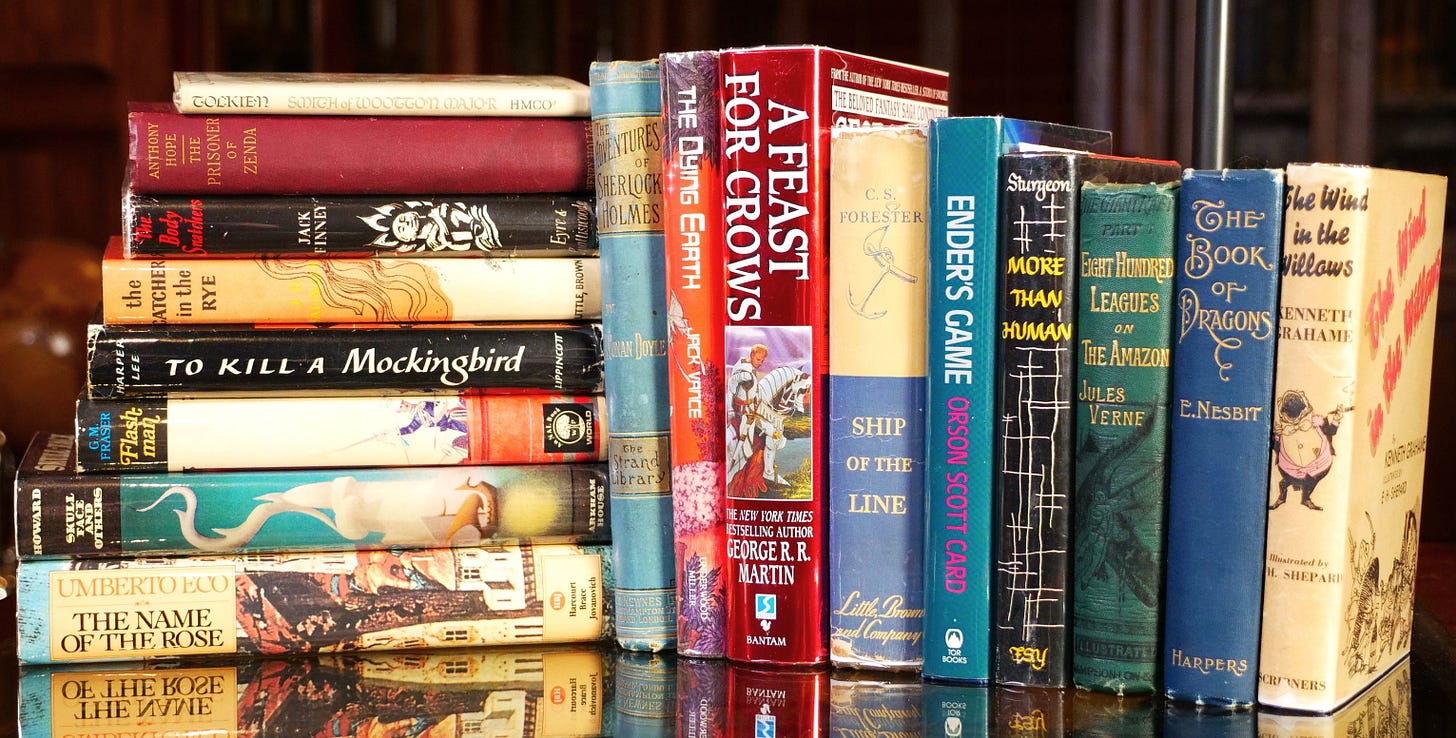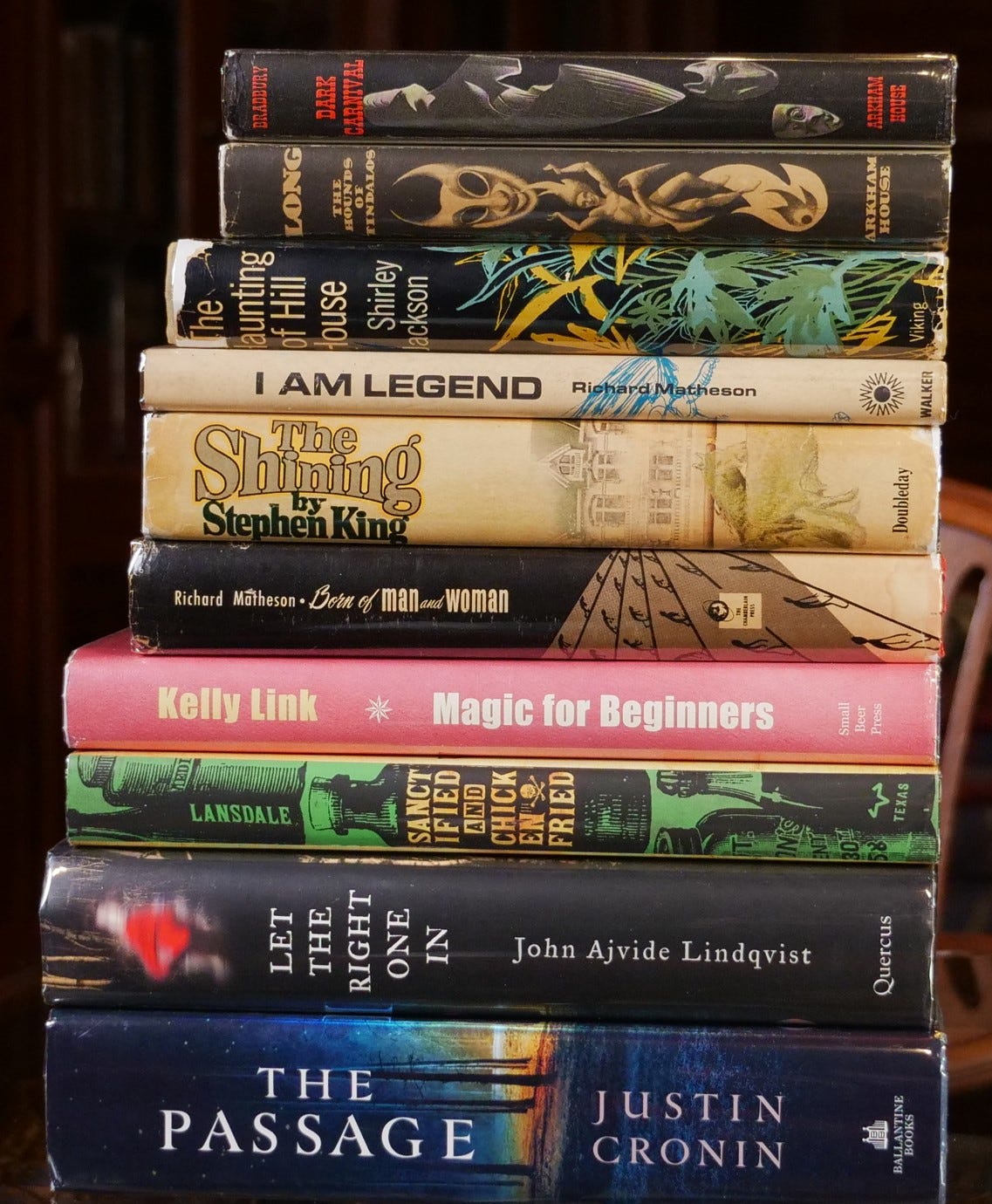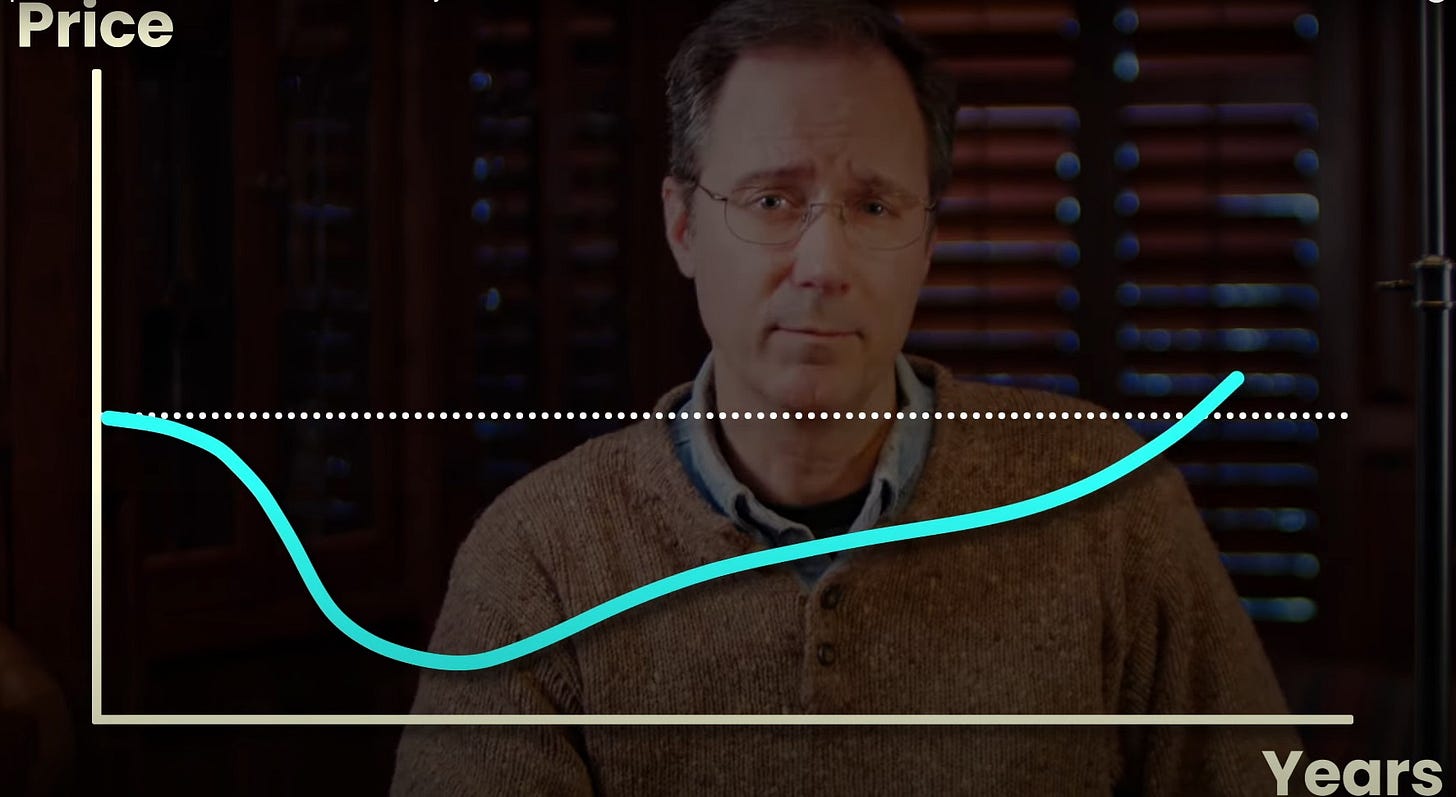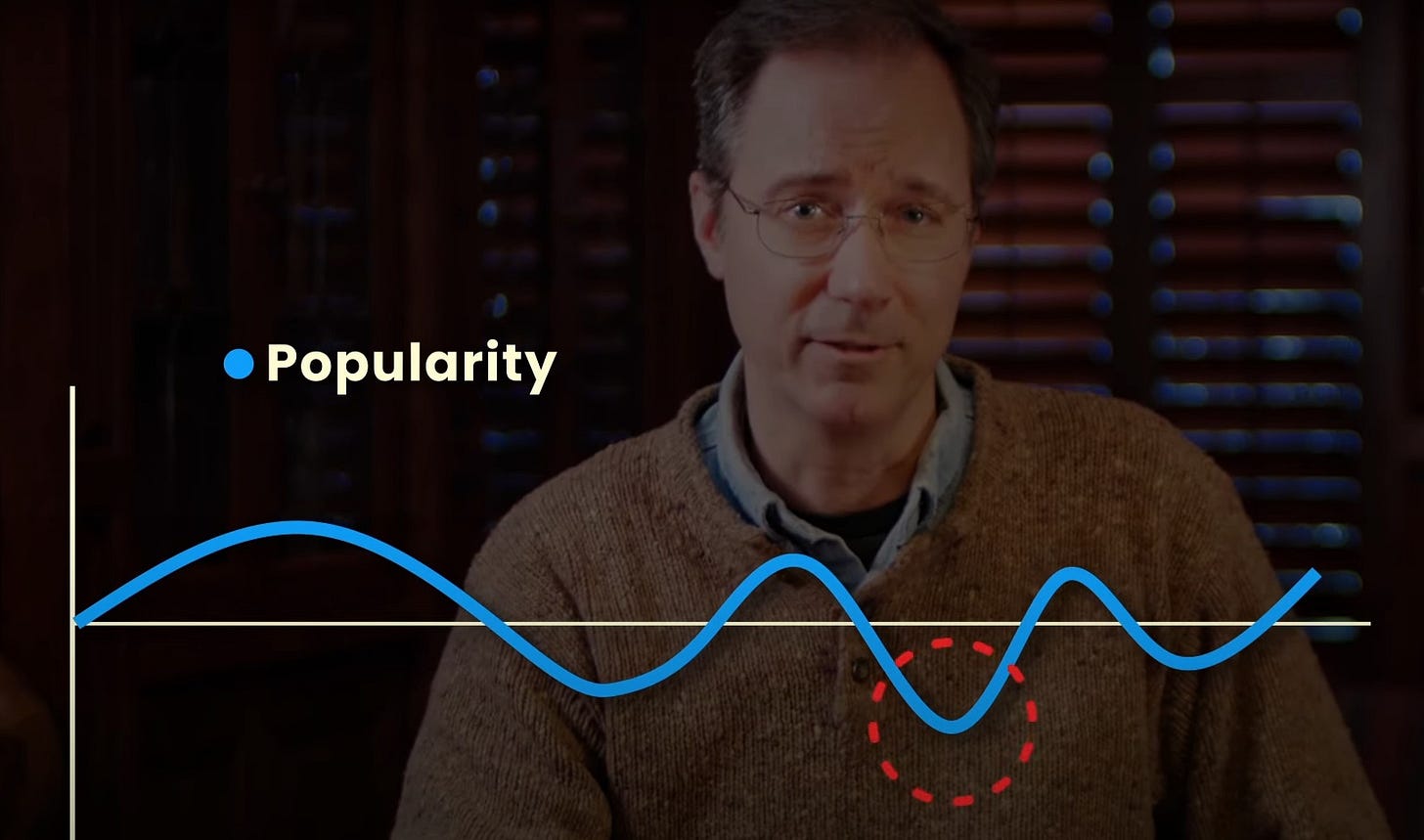10 tips to build the book collection you've always wanted
Find hidden treasures. Avoid overpaying. Beat the professionals at their own game.
This list of ten starter tips to help build a satisfying book collection economically is based on lessons of experience I’ve learned from 40+ years of book collecting. Most of the tips relate to physical copies of books rather than ebooks or audiobooks.
The first few tips should be obvious, but sometimes aren't.
1. Collect what you enjoy
Some people collect books because they have preconceived notions of what a well-read person should have in their collection, even though they might not enjoy the books.
Others assemble their collections based on how the books make them appear to other people. (Can a person's book collection truly be considered their own if it's put together to satisfy other people's expectations?)
Books are more than just ornaments to be displayed like a façade. I believe if you're going to collect books, pick books that genuinely make you happy, whether it's the look, the feel, or the smell of a book, or most important of all, its contents.
2. Decide what kind of collection you want
It’s important to have a clear understanding of the kind of collection you want, and why you want it. A book collection can be large or small. Its contents can be highly selective, or if you're a completist like me, it can be more expansive. Your goal might simply be to curate a library of personal favorites, or maybe a library of books you haven't yet read, but want to. Some people even collect books as a long-term investment strategy.
In my case, I'm a preservationist at heart. My collection has a strong emphasis on genre classics I want to preserve for posterity.
The important thing is to understand your goals as a collector, because it will help you plan and prioritize how you go about it.
3. Don’t buy new
If you want to stretch your book-buying budget, avoid buying books new at full retail price.
As I said, some of these are obvious.
If you can wait a few weeks or months after a book is released, used copies in Like New condition will start appearing on the used book market on eBay and Amazon Marketplace and in other, even lower-priced locations, which I'll discuss in a later tip.
Buying used might not help the author or your local bookstore much, but it can significantly reduce the number of books that end up wasted in landfills or pulp mills. And you'll be able to afford more books.
An exception to this tip involves limited editions and books published by specialty presses with small print runs. Those editions often appreciate in value as soon as the print run is sold out, so buying them new might actually be the best approach. They don't always go up in value, but it's something to keep in mind if you're in the market for them.
Be aware, though, that some of those specialty presses have significantly expanded the range of titles they publish and the sizes of their print runs, while at the same time substantially inflating the retail prices of their books. As a result, many of those books don't hold their value after the initial wave of enthusiastic collectors have purchased copies.
4. Start early
A book collection of any significant size takes time to acquire, particularly if you're targeting older or out-of-print editions that are harder to find. I've been actively collecting books for more than 40 years, growing my 10,000-volume library piece by piece over that time.
Another benefit of starting sooner rather than later is that the market value of many older books tends to increase over time as they become scarcer, making them more expensive to acquire.
5. Be patient
Once you've started early, the key to getting the most value while collecting is to be patient. For the best availability and prices, there are some common sweet spots when timing your book purchases.
First, while a book edition is still in print, a used copy of it will almost always sell for less than its original retail price.
For editions that many might regard as collectible, their prices on the used book market often follow a U-shaped curve. The price of a typical book edition starts at its retail price and gradually decreases on the used market as more of the original owners finish and discard it. This can result in a glut of used copies within a few years of a book's publication, after reader demand for the book has waned. If you can wait that long to read a book, this often is the best time to buy a copy, because you can readily find them at low prices and in very good or better condition.
As time goes on though, it becomes harder to find used copies in collectible condition, causing prices for them to trend upward. Depending on how popular the book or author is and on how small the early hardcover print runs were, prices can surpass the original retail price within a few years. Some exceptions to that pattern might include copies signed by the author or copies from a book's first print run, but even those often have lower prices for some period of time after publication.
Another timing sweet spot is for books that have been out of print for several years or more. Authors and genres tend to cycle in and out of popularity over decades. You can find terrific value by targeting older books at the bottom of that popularity cycle, before their historical relevance is recognized and before a new generation of readers discovers their merit.
As recently as 20 years ago, classic science fiction from the 1940s, 50s and 60s was in such a trough, and early editions of those books were much more available and affordable than they are today.
What authors or time periods in different genres are experiencing similar demand troughs now? Those might be worth prioritizing if they fit your collection objectives.









